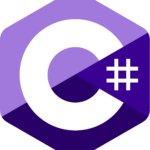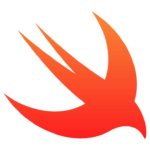Hire remote iOS developers that you can trust
Hire iOS developers from a unique network of 50,000+ pre-vetted offshore talents from Europe and Latin America, looking for a full-time contract. YouTeam developers stand apart for their ability to think like product managers and act like software architects. We also manage everything, so there’s zero overhead for your company.
Hire developers244 best iOS developers for hire on YouTeam in February 2025

Oleh
Solutions Architect
Lucas
Senior Mobile Developer
Pavlo
Mobile Developer
Luis
Software Developer
Daniel
Seasoned iOS Developer
Alexey
iOS Developer
Luciana
Senior iOS Developer
Osvaldo
Mobile Developer
Leonardo
Software Developer
Marco
Autonomous iOS DeveloperStart hiring to
see all talent
Hire
developers

Best Developer
Autonomous iOS DeveloperTrusted by Fortune 500 companies and Y Combinator startups
Why hire iOS developers with YouTeam
 48-hour personalized matching
YouTeam handpicks the best-matched candidates.
48-hour personalized matching
YouTeam handpicks the best-matched candidates.
 Zero overhead
Locally-compliant contracts and billing
Zero overhead
Locally-compliant contracts and billing
 Dedicated white-glove support
Dedicated white-glove support






How to hire iOS developers with YouTeam
Share your requirements Set up a quick call with one of our Matching Experts — your dedicated contact at YouTeam.
Undergo Personalized Matching Your Matching Expert curates a candidate list, conducts pre-interviews, and ensures a perfect match for your needs—covering developers' skills, tech stack preferences, interests, and personality.
Meet the right candidates Review a list of candidates screened specifically for your request and pick the best for the interview stage. Average interview-to-hire ratio on YouTeam platforms: 1.75.
Hire and work with confidence YouTeam automates contract signing and invoicing through its secure system. Your dedicated Matching Expert stays with you throughout the collaboration with contractors.

Find developers skilled in related technology
More technologiesRead about iOS on our blog
 10 Key Interview Questions for Hiring Senior iOS Developers (+Expected Answers)
10 Key Interview Questions for Hiring Senior iOS Developers (+Expected Answers)
Svetlana Shevchuk
 10 Things to Keep in Mind About iOS Development in 2024
10 Things to Keep in Mind About iOS Development in 2024
YouTeam Editorial Team
About iOS
- The evolution of iOS development
- Use cases for iOS development
- The best iOS app development tools
- What is the role of an iOS developer?
- iOS app developers' experience levels
- Tasks and responsibilities of an iOS developer
- Skills to look for in an iOS developer
- Types of iOS developers: freelancers, in-house engineers, or outsourced developers
- How to write an iOS developer job description?
- iOS developer hard skills assessment questions
iOS development has undergone significant changes since its inception in 2007, reflecting advancements in technology, shifts in user expectations, and the growing complexity of mobile applications. It all began with the launch of the original iPhone and the introduction of the iOS SDK. Objective-C was the primary programming language, and the App Store opened in 2008, allowing third-party developers to distribute their apps. This early period was marked by a focus on creating basic applications that showcased the capabilities of the new touchscreen interface. As smartphones gained popularity, the demand for mobile applications surged. The introduction of the iPad in 2010 and features like multitasking, notifications, and improved graphics with OpenGL ES spurred developers to explore more sophisticated app designs. The announcement of Swift in 2014 simplified development and increased productivity, marking a pivotal moment in the evolution of iOS.
In recent years, iOS development has expanded to encompass a wider ecosystem, including watchOS, tvOS, and macOS. The introduction of SwiftUI in 2019 revolutionized how developers create user interfaces, allowing for a more declarative syntax and enabling cross-platform compatibility. This period has also seen a growing focus on privacy and security, with Apple implementing features like App Tracking Transparency to enhance user control over personal data. Looking ahead, iOS development is poised to continue evolving with emerging technologies such as augmented reality (AR), machine learning (ML), and artificial intelligence (AI). The integration of ARKit has opened new possibilities for immersive experiences, while Core ML allows for the incorporation of machine learning models into apps. As user expectations rise, iOS developers will need to remain agile and adaptable, embracing new tools and frameworks to deliver cutting-edge applications that meet the demands of a rapidly changing landscape.
Here are some notable use cases for iOS development:
1. Healthcare Applications
iOS applications in the healthcare sector facilitate telemedicine services, appointment scheduling, and patient management. Users can consult with healthcare professionals remotely, access medical records, and receive medication reminders. Fitness and wellness apps also empower users to track physical activity and monitor health metrics.
2. Financial Services
In the finance industry, iOS applications revolutionize personal finance management. Mobile banking apps allow users to conduct transactions, monitor account balances, and transfer funds effortlessly. Financial management applications offer budgeting and investment tracking tools, while mobile payment solutions like Apple Pay simplify secure transactions for consumers.
3. E-Commerce Solutions
E-commerce retailers leverage iOS development to enhance the shopping experience through user-friendly applications. These apps often feature personalized recommendations, integrated payment options, and augmented reality (AR) capabilities, enabling customers to visualize products in their environment before purchasing.
4. Educational Tools
iOS applications are transforming education by providing interactive content and multimedia resources that engage students. Many educational institutions use mobile platforms for classroom management, allowing teachers to track attendance, distribute assignments, and communicate with students efficiently. The accessibility of iOS devices fosters a more flexible and personalized learning environment.
5. Entertainment Platforms
The entertainment industry thrives on iOS development, with applications catering to streaming services, gaming, and content consumption. Platforms like Netflix and Spotify provide on-demand access to movies, TV shows, and music, while innovative gaming apps leverage advanced graphics and touch interfaces to deliver engaging experiences. Social features in these applications enhance user interaction and community building.
Here are some of the best iOS app development tools that developers leverage to create user-friendly applications:
1. Xcode
Xcode is Apple’s official integrated development environment (IDE) for macOS, providing everything developers need to build, test, and debug iOS applications. It includes a code editor, Interface Builder for designing user interfaces, and powerful debugging tools. Xcode also offers simulators for testing apps on various iOS devices, making it an essential tool for any iOS developer.
2. Swift
Swift is Apple’s modern programming language designed specifically for iOS and macOS development. Known for its speed and performance, Swift simplifies coding with a clean syntax and a rich set of features, making it easier for developers to write and maintain code. Its interoperability with Objective-C allows developers to integrate existing codebases smoothly.
3. CocoaPods
CocoaPods is a dependency manager for Swift and Objective-C projects, simplifying the process of integrating third-party libraries into iOS applications. With a large repository of libraries available, CocoaPods helps developers save time by avoiding the hassle of manually configuring dependencies, enabling faster development cycles.
4. Firebase
Firebase is a comprehensive app development platform by Google that offers various services, including real-time databases, authentication, and cloud storage. With Firebase, developers can easily add backend functionality to their iOS applications without the need to manage servers. Its robust analytics tools also help track user engagement and app performance.
5. TestFlight
TestFlight is Apple’s beta testing service that allows developers to distribute their iOS applications to testers before the official release. It streamlines the process of gathering feedback and monitoring app performance, making it easier to identify and fix issues before launching the app to the public.
6. Realm
Realm is a mobile database solution that provides an alternative to Core Data and SQLite. It offers fast performance and an intuitive API, making it easier for developers to manage data in their iOS applications. With support for real-time synchronization and cross-platform capabilities, Realm is ideal for apps that require efficient data handling.
7. Sketch
Sketch is a popular design tool used for creating user interfaces and prototypes for iOS applications. With its vector editing capabilities and extensive plugin ecosystem, designers can collaborate seamlessly with developers and ensure that the final product aligns with the envisioned user experience.
8. GitHub
GitHub is a version control platform that enables developers to collaborate on projects and manage code repositories efficiently. By using GitHub, iOS developers can track changes, resolve conflicts, and work on features simultaneously, fostering collaboration and maintaining code quality.
The role of an iOS developer involves designing and building applications specifically for Apple’s iOS platform. They leverage programming languages such as Swift and Objective-C to create intuitive user interfaces and integrate backend services through APIs. Additionally, iOS developers conduct thorough testing to ensure app functionality and performance, while also optimizing code for efficiency. They collaborate with cross-functional teams, including designers and product managers, to translate requirements into high-quality, user-friendly applications.
iOS app developers can be classified into three experience levels: junior, mid-level, and senior developers, based on their expertise and years of experience.
Junior iOS Developers
- Experience: Entry-level to 2 years.
- Skills: Basic knowledge of Swift or Objective-C and familiarity with iOS frameworks like SwiftUI, RxSwift, and Realm. They also have experience with libraries such as SVProgressHUD and basic proficiency with code versioning tools like Git, Mercurial, or SVN.
- Role: Junior developers work on simple tasks under the guidance of more experienced team members. Companies looking to hire iOS developers at this level should expect them to learn and grow under the mentorship of senior developers.
Mid-Level iOS Developers
- Experience: 2 to 5 years.
- Skills: Advanced knowledge of Swift and Objective-C, along with a solid understanding of UI/UX standards, web technologies, and iOS frameworks like Core Data and Core Animation.
- Role: Mid-level developers are capable of providing their own software solutions and implementing them independently. When you hire iOS app developers with this level of experience, they can handle more complex tasks and contribute to the project’s success with greater autonomy.
Senior iOS Developers
- Experience: 5+ years.
- Skills: Expertise in multiple programming languages, extensive knowledge of iOS frameworks, low-level C-based libraries, cloud messaging APIs, and RESTful APIs.
- Role: Senior iOS developers are fully independent, capable of creating applications from scratch, and providing the most efficient software solutions for business needs. These developers often lead teams, guiding junior developers and ensuring the project’s success. When you hire senior iOS developers, they bring strong technical skills, as well as communication and management expertise.
Whether you’re looking to hire freelance iOS developers, hire an iOS developer for a full-time role, or onboard senior iOS developers, understanding these experience levels ensures you choose the right developer for your project’s needs.
Here are the key responsibilities of an iOS developer:
1. Application Design and Development
iOS developers design and implement mobile applications for iOS devices, focusing on user experience and functionality. They utilize programming languages such as Swift and Objective-C and are proficient in using development tools like Xcode to build, test, and debug applications.
2. User Interface (UI) Development
Creating intuitive and engaging user interfaces is a core responsibility. iOS developers work closely with designers to translate wireframes and design prototypes into fully functional UI components that adhere to Apple’s Human Interface Guidelines.
3. Integration of APIs and Data Sources
iOS developers integrate third-party APIs and data sources to enhance app functionality. This includes working with RESTful APIs, cloud services, and local databases, ensuring seamless data flow and interaction within the application.
4. Testing and Debugging
Conducting rigorous testing is essential to ensure the application runs smoothly and is free of bugs. iOS developers perform unit testing, UI testing, and beta testing, using tools like XCTest to identify and resolve issues before deployment.
5. Performance Optimization
Developers are responsible for optimizing app performance, including load times and responsiveness. They analyze code for efficiency, implement caching strategies, and ensure that the application runs smoothly on various iOS devices.
6. Maintenance and Updates
After the app is launched, iOS developers continue to monitor its performance, address user feedback, and implement updates as needed. This includes fixing bugs, adding new features, and ensuring compatibility with the latest iOS versions.
7. Collaboration with Cross-Functional Teams
iOS developers often work in collaboration with product managers, UI/UX designers, and backend developers. Effective communication and teamwork are vital for aligning project goals, sharing updates, and gathering feedback throughout the development process.
8. Staying Current with Industry Trends
Keeping up with the latest developments in iOS technology, frameworks, and best practices is crucial. iOS developers participate in ongoing education through workshops, conferences, and online resources to stay informed about emerging tools and techniques.
Before hiring an iOS engineer, you should evaluate a range of skills that contribute to their effectiveness:
1. Proficiency in Programming Languages
A strong command of Swift and Objective-C is crucial, as these are the primary languages used for iOS development. Familiarity with newer technologies such as SwiftUI can also be beneficial.
2. Understanding of iOS Frameworks
Knowledge of core iOS frameworks, such as UIKit, Core Data, and Core Animation, is vital for building robust applications. Experience with third-party libraries and frameworks can enhance development efficiency.
3. UI/UX Design Principles
An iOS developer should possess a solid understanding of user interface (UI) and user experience (UX) design principles. This helps in creating intuitive and engaging applications that align with Apple’s Human Interface Guidelines.
4. API Integration Skills
Proficiency in integrating RESTful APIs and working with cloud services is important for connecting mobile applications to backend systems and enhancing functionality.
5. Testing and Debugging Proficiency
A competent iOS developer should be skilled in testing and debugging using tools like XCTest. This ensures that applications are reliable and free of bugs before release.
6. Version Control Systems
Familiarity with version control systems like Git is essential for managing code changes and collaborating effectively within development teams.
7. Problem-Solving Abilities
Strong analytical and problem-solving skills are necessary for tackling complex challenges that arise during development and optimizing app performance.
8. Continuous Learning Mindset
Given the fast-paced nature of mobile technology, a successful iOS developer should demonstrate a commitment to continuous learning, keeping abreast of the latest trends, tools, and best practices in iOS development.
Freelance iOS Developers
Freelancers can be a great choice for short-term projects or specific tasks that don’t require the involvement of an entire development team. One significant advantage of hiring freelancers is the speed at which you can onboard them, often starting work on your project the same day. They are typically more cost-effective since you only pay based on their hourly rates. However, freelancers are often juggling multiple projects simultaneously, which can lead to a lack of attention and dedication.
In-House iOS Developers
If you are in the core development phase and need a dedicated team to deliver high-quality products, hiring in-house engineers may be a suitable choice. These developers work directly within your organization, allowing for better communication and collaboration on projects. However, this approach can be more expensive due to the costs associated with salaries, benefits, and team maintenance.
Outsourced iOS Developers
The third option is outsourcing, which can be categorized into two approaches: project outsourcing and staff augmentation. With project outsourcing, you can hire an entire development team, including a product manager and quality assurance (QA) specialists, to work on your project. This option provides the advantage of having a dedicated team of skilled developers who can create your product from scratch. It can also be cost-effective, as many developers are sourced from countries with lower living costs.
Staff augmentation allows you to hire one or several highly skilled engineers from development agencies. This approach is also cost-effective, as you only pay for the developers’ working hours, in addition to any fees associated with the development agency.
On the other hand, outsourcing may lead to challenges in communication and project alignment due to differences in time zones and cultural factors.
1. Company Overview: Start with a brief introduction to your company, including its mission, values, and any unique aspects that set it apart. This gives potential applicants context about your organization.
2. Key Responsibilities: Clearly outline the primary duties of the role, such as:
- Developing and maintaining iOS applications
- Collaborating with cross-functional teams
- Participating in code reviews
- Troubleshooting and debugging applications
3. Required Skills: Specify the essential technical skills needed, including:
- Proficiency in Swift and Objective-C
- Experience with iOS frameworks (e.g., Core Data, UIKit)
- Familiarity with version control systems like Git
4. Relevant Experience: Detail any relevant experience that candidates should have, such as:
- Prior work on mobile applications
- Knowledge of design principles and best practices
5. Preferred Qualifications: Mention any additional qualifications that would be advantageous, such as:
- Experience with UI/UX design
- Familiarity with Agile methodologies
6. Company Culture and Benefits: Provide insights into your company culture and the benefits offered, such as flexible working hours, opportunities for professional development, and other perks. This helps candidates understand what it’s like to work at your organization.
By following these steps, you can create a comprehensive and engaging job description that attracts qualified iOS developers.
Here are some hard skills assessment questions tailored for experienced iOS developers:
1. What are the differences between Swift and Objective-C?
Expected Response: Candidates should explain the key differences, including syntax, performance, safety features, and interoperability.
2. How do you manage memory in iOS applications?
Expected Response: Look for an understanding of Automatic Reference Counting (ARC), memory management techniques, and best practices for optimizing memory usage.
3. Can you explain the Model-View-Controller (MVC) design pattern and how it is implemented in iOS?
Expected Response: Candidates should describe MVC, its components, and how they structure iOS applications using this design pattern.
4. What is the purpose of using delegates and data sources in iOS development?
Expected Response: Candidates should discuss the roles of delegates and data sources, including how they enable communication between objects in a decoupled manner.
5. How do you handle asynchronous operations in iOS?
Expected Response: Look for knowledge of Grand Central Dispatch (GCD), Operation Queues, or Promises, and how these are used to manage tasks without blocking the main thread.
6. What are some common iOS app architecture patterns you have used?
Expected Response: Candidates should mention various architecture patterns, such as MVC, MVVM, and VIPER, and discuss their pros and cons.
7. Can you describe how to implement push notifications in an iOS app?
Expected Response: Candidates should explain the process of setting up push notifications, including registration for remote notifications, handling notifications, and using services like APNs.
8. What are some strategies for optimizing the performance of an iOS application?
Expected Response: Look for insights on using Instruments for profiling, efficient data management, minimizing network calls, and optimizing UI rendering.
9. How do you ensure the security of sensitive data in your iOS applications?
Expected Response: Candidates should discuss techniques like using the Keychain for secure storage, encryption methods, and following best practices for data protection.
10. What tools do you use for version control, and how do you manage code collaboration in a team?
Expected Response: Look for familiarity with Git, branching strategies, pull requests, and code review processes.
FAQ about Hiring iOS developer
Why choose YouTeam to hire iOS developers?
YouTeam offers access to a highly qualified pool of iOS developers, helping you scale your team quickly. Each developer is thoroughly vetted, ensuring their skills, experience, and reliability. With partnerships across 500+ development agencies and over 50,000 developers, you can receive qualified candidates within 48 hours, making it a fast and reliable solution for your hiring needs.
How does YouTeam vet iOS developers?
YouTeam follows a multi-stage vetting process. First, developers are sourced from trusted development agencies, ensuring they meet the necessary skill and experience requirements. Pre-screened candidates are then forwarded to clients for further interviews, allowing them to select the best fit based on specific project needs.
How much does it cost to hire the best iOS developers through YouTeam?
The cost of hiring iOS developers on YouTeam varies based on factors like expertise, location, and skills. On average, an iOS developer through YouTeam charges around $49 per hour, though rates can fluctuate depending on specific project requirements.
How quickly can you hire with YouTeam?
With YouTeam, you can hire developers faster than traditional methods. Here’s why:
1. Shortlist in 48 hours: Powered by our AI Matchmaker and human experts, we deliver a tailored shortlist of vetted candidates within just 48 hours.
2. Larger talent pool: As a marketplace, YouTeam offers access to a broader range of developers from hundreds of partner agencies, giving you more options than typical outsourcing agencies.
3. Seamless process: From the moment you request a call, our Matching Experts handle the rest, ensuring you quickly receive top-quality candidates who match your precise requirements.
With YouTeam, our clients have been able to build development teams within just a few weeks, not months.
What is the no-risk trial period for YouTeam developers?
1-Month Trial: You can terminate the engagement at any time during the first month.
Free Replacements: If you’d like to replace a contractor, we’ll do it within two weeks, free of charge.
You can learn more by reading our Money-Back Guarantee.
How is YouTeam different from freelance portals for hiring iOS developers?
Unlike freelance platforms, YouTeam connects you with developers from trusted software development agencies, not freelancers. This ensures that developers have the necessary technical and soft skills, along with relevant experience. If a developer needs to be replaced unexpectedly, YouTeam can quickly provide a substitute of equal skill to avoid project delays.
How do iOS developer salaries differ, and why?
In the United States, average annual salaries for iOS developers typically range from $90,000 to $150,000. In major tech hubs like San Francisco and New York City, experienced developers can command salaries exceeding $160,000 due to high demand for skilled professionals and the elevated cost of living in these areas. Companies in sectors such as finance, healthcare, and technology often offer competitive salaries to attract top talent capable of creating complex applications.
In contrast, salaries for iOS developers in regions like Eastern Europe generally range from $30,000 to $60,000 per year. This difference is largely attributed to lower living costs and a growing tech market in those regions. Similarly, in Latin America, iOS developer salaries can range from $25,000 to $50,000, making these regions attractive options for companies seeking skilled developers at more affordable rates.
Several factors contribute to these salary differences:
1. Location: Developers in major urban areas with a high cost of living typically earn more due to increased competition for talent and the need to attract professionals who can afford to live in those regions.
2. Experience Level: Junior iOS developers with limited experience earn significantly less than their senior counterparts, who can leverage their expertise to command higher salaries.
3. Industry Demand: Industries that rely heavily on mobile technology, such as finance and health tech, often pay a premium for skilled iOS developers who can deliver reliable and innovative applications.
4. Skill Set and Specialization: Developers with expertise in specific technologies, such as SwiftUI, Core Data, or cloud services, may earn more due to their specialized knowledge and the added value they bring to projects.
5. Company Size and Reputation: Larger companies with established brands and resources typically offer higher salaries and benefits compared to startups, which might compensate for lower salaries with equity or flexible work schedules.
Reviews
“It's just much more convenient to find a small team. I talk to one person, get 5 hand-picked CVs, interview candidates, hire the best ones – and I’m done!”
“Every time YouTeam sends me a list of potential developers, I am confident that I can interview pretty much anybody and they will be a good candidate.”
“The decision to use YouTeam was made by comparing them directly to the other candidates. As soon as I started talking to them, YouTeam adopted a hands-on approach. Time-wise, YouTeam also performed well.”
“We will definitely continue with them in the future. I’m so happy with their work that I’ve recommended them to my other company as well. There were no issues, it was really good. I gave a very loose brief, and the developer who worked for me had enough initiative to tighten it up by asking relevant questions. There was no messing around—it was done really well, with good, clean code.”
“YouTeam was very quick and responsive. I was presented with great candidates in just days, which was fantastic for me because we were looking to move fast. They had experience working on similar projects to exactly what we needed.”
“We wanted to boost our capacity for a period of six to twelve months. I decided to get a shot with YouTeam is that in any other place I can't say that I'm looking for a team of 5 developers with the possibility to scale. Now I returned to them again - this time for the confidence. If somebody is on the YouTube platform, you know that they've met a certain threshold of customer satisfaction, they've got a history of successful work elsewhere.”










